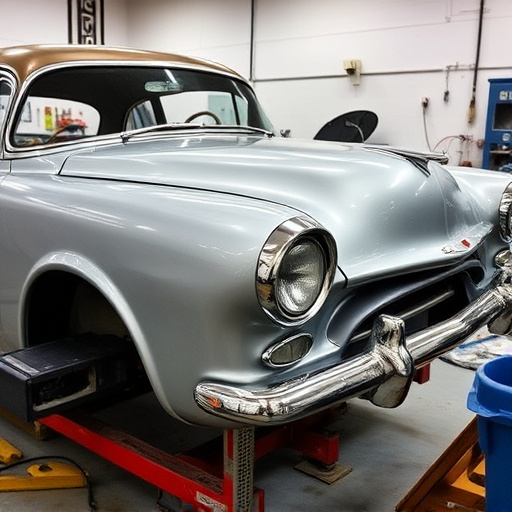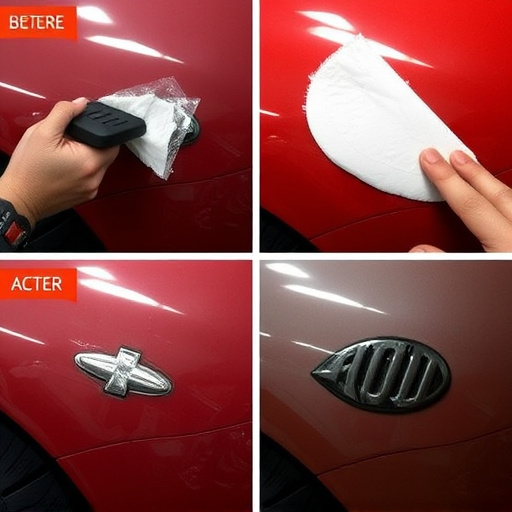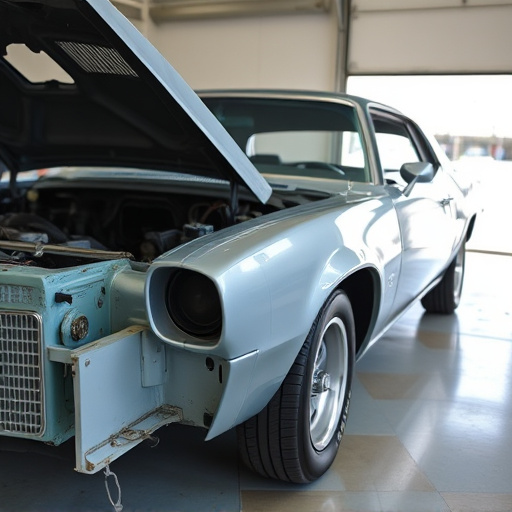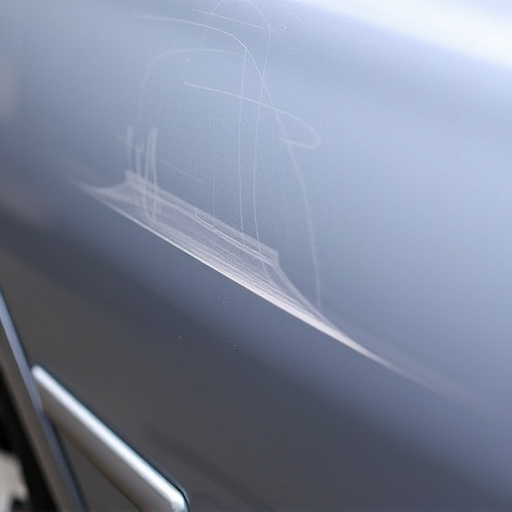The evolution of new auto body panels is driven by materials science advancements like composite fibers, aluminum alloys, and high-strength steels, offering improved strength, durability, and environmental benefits. Smart materials and nanotechnologies integrate sensors and self-healing capabilities. Digital design and manufacturing technologies enhance precision, reduce costs, and enable quick customization. The industry shifts towards sustainable practices using recycled materials and advanced recycling techniques to minimize waste and environmental impact.
The future of manufacturing new auto body panels is here, driven by advancements in materials science, digital design, and sustainable practices. This evolution promises not only enhanced performance and aesthetics but also reduced environmental impact. Advanced materials, such as lightweight composites and high-strength steels, are reshaping the automotive landscape. Digital design and manufacturing techniques ensure precise, efficient production processes. Additionally, sustainability plays a pivotal role with greener approaches to panel creation, addressing the industry’s ecological footprint.
- Advanced Materials: Shaping the Future of Auto Panels
- Digital Design and Manufacturing: Precision in Production
- Sustainability: Greener Approaches to Panel Creation
Advanced Materials: Shaping the Future of Auto Panels

The future of manufacturing new auto body panels is closely tied to advancements in materials science. As technology evolves, so too does the potential for creating lighter, stronger, and more durable components that enhance vehicle performance and safety. Advanced materials like composite fibers, aluminum alloys, and high-strength steels are transforming the automotive industry by offering significant advantages over traditional metal panels. These innovative alternatives not only reduce weight, but also provide exceptional rigidity and corrosion resistance, contributing to improved fuel efficiency and reduced environmental impact.
Furthermore, the integration of smart materials and nanotechnologies opens up exciting possibilities for auto body panels. These cutting-edge materials can incorporate sensors, memory alloys, and self-healing capabilities, enabling vehicles to respond dynamically to external stimuli such as impacts or changes in temperature. Such developments promise revolutionary changes in vehicle repair and maintenance, with implications for both vehicle paint repair and car dent removal. By embracing advanced materials, the future of manufacturing new auto body panels appears poised to redefine not only strength and durability but also adaptability and self-sustainability.
Digital Design and Manufacturing: Precision in Production

The future of manufacturing new auto body panels lies heavily in digital design and manufacturing technologies. These advanced tools offer unparalleled precision in production, enabling the creation of complex shapes and structures with minimal waste. By utilizing computer-aided design (CAD) software, manufacturers can streamline the process from concept to creation, ensuring each panel meets exacting specifications. This level of accuracy is not only beneficial for quality control but also reduces the time and cost associated with traditional manufacturing methods.
Incorporating digital solutions into auto body panel production brings a new era of efficiency and consistency. Manufacturers can now easily customize panels according to specific vehicle models, enhancing safety features and aesthetic appeal. Moreover, these technologies play a pivotal role in the rapid turnaround times demanded by modern fleet repair services and collision repair services. With the ability to quickly design and produce replacement parts, such as car dent removal tools or specialized panels, auto body shops can offer faster and more effective services, meeting the needs of both individuals and commercial clients.
Sustainability: Greener Approaches to Panel Creation

The automotive industry is embracing a greener future when it comes to manufacturing new auto body panels. Traditional methods often relied on intensive resource extraction and energy-consuming production processes, contributing to environmental degradation. However, there’s a growing trend towards sustainability, with manufacturers exploring eco-friendly alternatives. One promising approach involves using recycled materials, such as plastic waste and alternative fibers, to create innovative composite panels. These materials reduce the need for virgin resources and minimize waste, making them an attractive option for environmentally conscious consumers.
Additionally, advanced recycling techniques are gaining traction. Technologies like chemical recycling allow for the breakdown of complex materials, enabling the recovery of valuable components for new panel production. This not only reduces the environmental impact but also ensures a consistent supply of raw materials. As the demand for efficient and eco-friendly car collision repair and fleet repair services continues to rise, these sustainable practices are poised to play a pivotal role in shaping the future of auto body panels, aligning with the global push for greener manufacturing processes and contributing to the overall efficiency of auto maintenance.
The future of manufacturing new auto body panels is bright, with advancements in materials science, digital design, and sustainable production methods. By leveraging advanced materials like lightweight composites and innovative digital manufacturing techniques, the industry can create more robust, fuel-efficient, and environmentally friendly vehicle structures. As consumers demand greener alternatives, the shift towards sustainable practices in panel creation becomes increasingly vital. This holistic approach ensures not only the survival but also the thriving of the automotive sector in a rapidly changing world.














